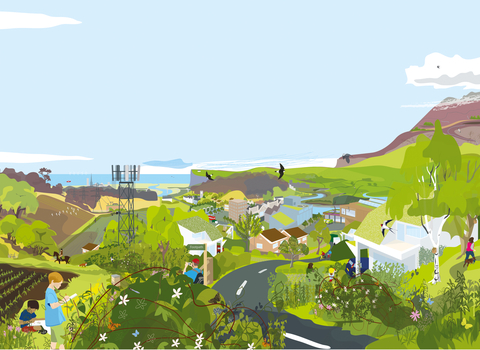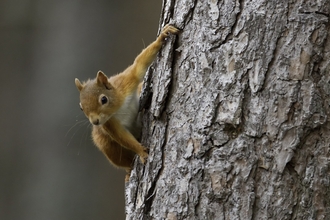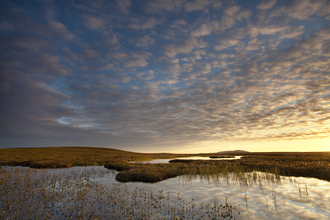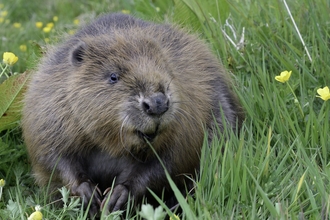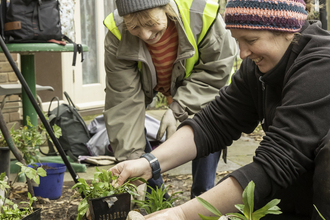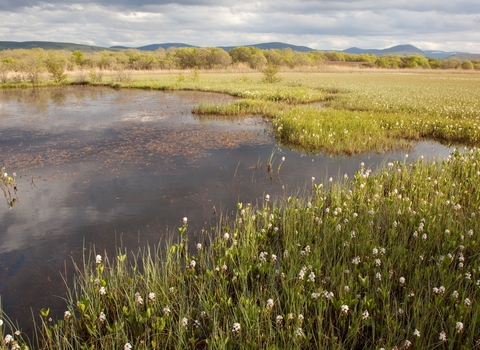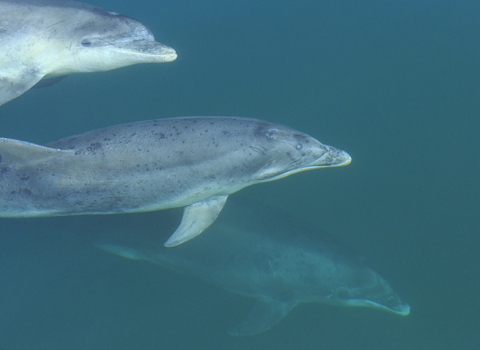Our vision for the future
Living Landscapes are our vision of a future where wildlife thrives across Wales - in farmland, woodland, wetland, and even our towns and cities. A future where the landscape allows wildlife to move in response to changing conditions and where everyone has access to wild places.
The Wildlife Trust of South and West Wales was formed in 1938 and since then much of our work has focused on the acquisition and management of nature reserves. However, outside these nature reserves, wildlife continued to decline. If we hope to achieve our vision of Living Landscapes, we have to think outside the boundaries of nature reserves. We have to take bold steps to restore, reconnect and recreate our landscape, in order to protect our wildlife, for its inherent value but also because the health and wellbeing of the environment is what secures the future of our own health and wellbeing.
View our other projects
Ecological emergency
Whilst we have seen some great success stories in Wales, including the acquisition and management of new nature reserves and designated areas, many species and habitats continue to decline.
Outside our protected areas, habitats have been lost on an unprecedented scale. Across Britain, 97% of our wildflower meadows have disappeared and 90% of our heathland. As the demand for land for agriculture, housing and development increased, so the room for wildlife and natural processes decreased. Woodlands were cleared, wetlands drained, rivers straightened and hedgerows removed. As a result:
- Water now flows more quickly through the landscape into our towns and cities, and drains faster even in our urban areas due to loss of permeable surfaces in gardens.
- Valuable soils have been washed or blown away, undermining the ecological security of our communities.
- Statistics abound of how wildlife is struggling to thrive, restricted as it is to such isolated patches. That struggle will get harder as our climate changes.
People are suffering too from a profound separation from the natural world. This is bad for our health, our happiness and also bad for our future. We depend upon natural processes for clean water, food, flood protection and climate control – for our ecological security.
Securing our own future
All species and their habitats have inherent value, and The Wildlife Trusts will always work to protect them and inspire others to do the same.
However, a thriving and functioning environment is also what helps us to survive. With the country facing unprecedented economic uncertainty and pressures for energy generation, food production and housing, there is a risk that we overlook the very basis of our economy and our society: the natural environment upon which this all depends. Climate change presents nature with a whole new challenge; and the wrong response to climate change might create still more problems.
There is scant legislative provision for the proactive restoration of ecosystem health or for stimulating the creation of new habitats on a significant scale. Yet we depend on many of these places and processes for survival- some we understand well (such as pollination) and many others of which we may even be unaware, until their function becomes impaired.
Therefore WTSWW will work towards safeguarding and restoring these natural processes. and raising awareness of the key role of the natural world in our own sustained health and well-being as well as for the benefit of wildlife.

